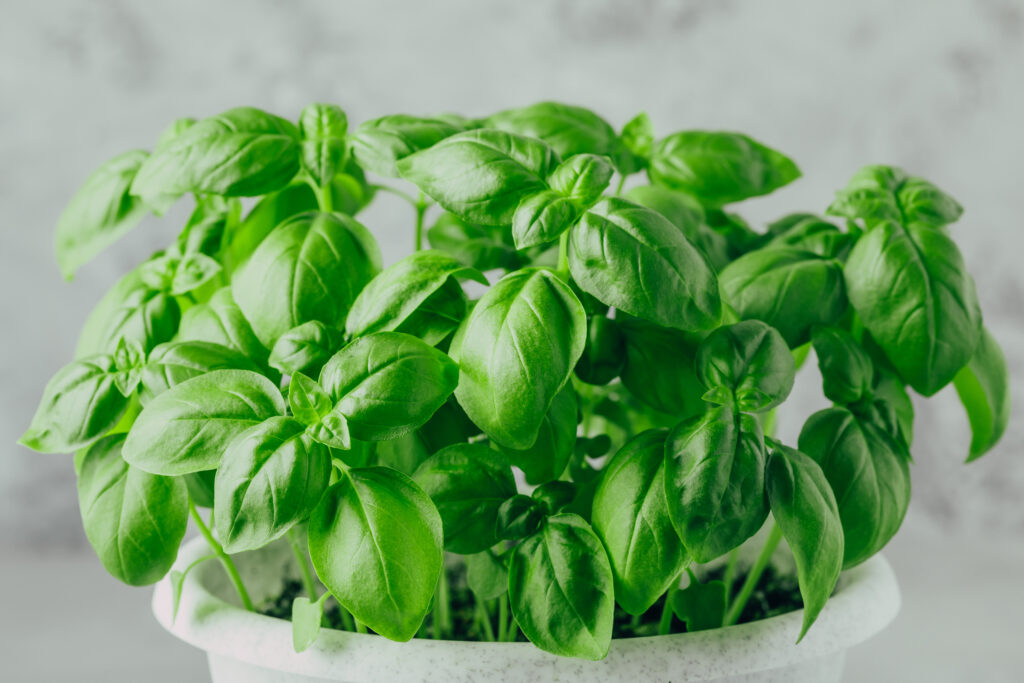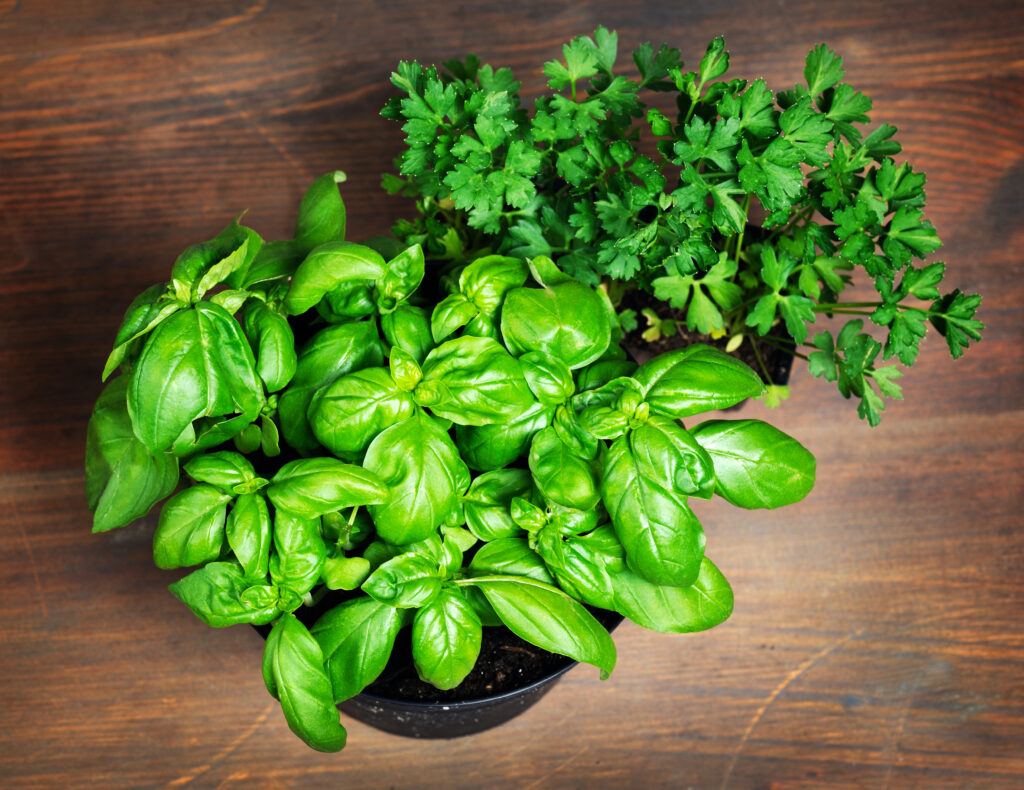11 Interesting Facts About Basil

Introduction
Basil is one of the most popular and beloved culinary herbs. With its sweet yet slightly spicy flavor, it adds a fresh and aromatic essence to many dishes. But basil is much more than just a tasty cooking ingredient. Throughout history, this versatile herb has been revered for both its culinary and medicinal properties. From ancient Egypt to modern-day Italy, basil has made its mark across cultures.
Beyond its rich history, basil offers an array of health benefits thanks to its nutritional content. It contains a variety of vitamins, minerals, and antioxidants that can boost your overall well-being. Additionally, ongoing research continues to uncover exciting new potential applications for basil.
To truly appreciate this remarkable herb, let’s explore some of the most fascinating facts about basil.
1. Its Name Comes From the Greek Word for “King”

The word “basil” is derived from the old Greek word “basilikohn,” which means royal or king. This denotes the herb’s noble status in ancient Greek culture1. They believed basil had sacred properties that could purify and protect.
In India, basil is referred to as “tulsi,” which translates to “the incomparable one.” It has religious significance and is considered the holiest of plants in the Hindu religion.
2. There Are Over 60 Varieties of Basil
While many people are familiar with the popular sweet basil variety, there are actually over 60 different types of basil. Each variety has its unique taste, aroma, and appearance2.
Some other common varieties include lemon basil, Thai basil, cinnamon basil, and purple basil. The diversity of basil types allows for versatility in the kitchen.
3. It Belongs to the Mint Family
Along with other aromatic herbs like mint, oregano, rosemary, and lavender, basil belongs to the Lamiaceae or mint family. That explains why it shares a similarly refreshing scent with other mint-family plants.
4. Basil Contains Potent Essential Oils

The strong scent of basil comes from its essential oils, primarily eugenol, linalool, citronellol, and limonene. These oils not only provide fragrance but are also responsible for some of basil’s health benefits.
Studies show basil’s essential oils have antioxidant, antimicrobial, and anti-inflammatory properties that can help fight infections, reduce swelling, and protect cells from damage.
5. It Has Been Used Medicinally for Centuries
In addition to its culinary significance, basil has a long history of medicinal use. Ancient Egyptians used it to embalm bodies, while Greek herbalists prescribed it for ailments like stomach pain, vomiting, and fever.
Ayurvedic and traditional Chinese medicine have relied on basil as a remedy for various health conditions. Today, it continues to be studied for its potential therapeutic effects.
6. Basil Contains Disease-Fighting Nutrients
This flavorful herb provides an array of vitamins and minerals that can boost your health. Just one tablespoon of fresh basil contains:
- 5% of your daily vitamin K
- 3% of your daily vitamin A
- 2% of your daily vitamin C
- 1% of your daily calcium
- 1% of your daily iron
It also has trace amounts of magnesium, phosphorus, potassium, and zinc. Additionally, it contains zero fat and minimal calories.
7. It Has Antibacterial Properties
Research indicates that compounds in basil can inhibit the growth of certain strains of bacteria that cause foodborne illnesses, dental cavities, and skin infections. Its oils may also combat drug-resistant bacteria.
8. Basil Could Protect Against Chronic Diseases
With its antioxidant, anti-inflammatory, and antimicrobial effects, preliminary studies suggest basil may offer protection against chronic conditions like heart disease, diabetes, cancer, and arthritis. More human research is needed to confirm these potential benefits.
9. It Can Repel Mosquitoes and Other Pests
Rubbing basil leaves on your skin or planting basil in your garden may help ward off annoying mosquito bites. Studies also show basil oil can deter flies, ticks, and thrips, making it a natural insect repellent.
10. Italians Love It on Their Food
Sweet basil is a quintessential ingredient in Italian cuisine. It adds its signature flavor to beloved dishes like pesto, caprese salad, pasta sauces, and pizza. It’s no wonder Italy is one of the world’s top producers of basil.
11. Basil Is Easy to Grow at Home
With proper care, you can easily grow basil in your herb garden or even indoors in a pot. Basil thrives in warm conditions and well-drained soil. Give it full sun exposure and water when the soil dries out to keep your basil flourishing.
Conclusion
From its royal name to its broad medicinal history, basil has long been recognized as a special herb. Today, it remains a staple in kitchens around the globe thanks to its vibrant flavor and nutritional value. And researchers continue to uncover exciting new benefits of this multi-faceted plant.
The next time you enjoy the aroma and taste of fresh basil, remember just how fascinating this herb truly is. Over thousands of years, basil has earned its status as the king of herbs.
- https://spicepicableme.com/basilisk/ [↩]
- 15 Types Of Basil And How To Use Them, https://www.tastingtable.com/ [↩]





